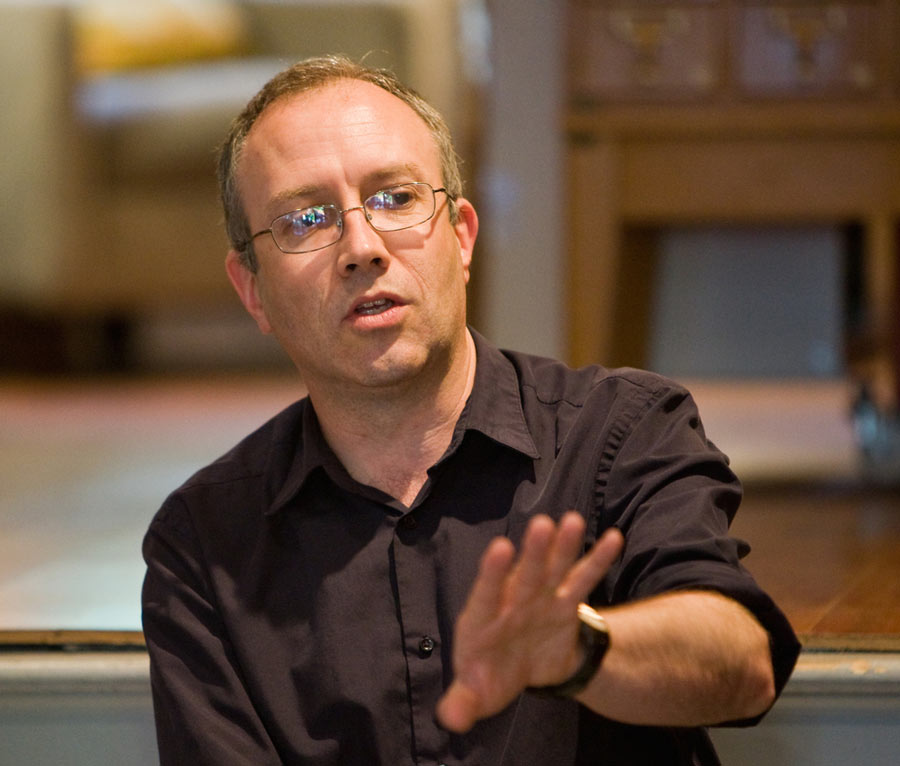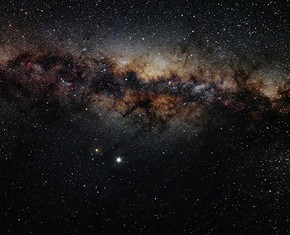The views expressed in our content reflect individual perspectives and do not represent the authoritative views of the Baha'i Faith.
Science has given us the answers to many, many questions—but we have so many more questions to answer. We know some things, but what we know pales in comparison to all the stuff we don’t know.
Why does the universe exist? Who knows? How many galaxies? The number keeps rising. How many stars? No one can even guess. How many planets? Uncountable. How big is our universe? Impossible to measure. Even our most sophisticated instruments in deep space can’t see beyond the edge of the universe, which means we have no idea whether it even has any edges.
So we cannot yet know whether the universe—which, by definition, encompasses all of space and time and everything else, too—is finite or infinite. Our collective lack of knowledge suggests that we humans, finite beings living in an infinite reality, may never have the answers to all of our questions. Or perhaps it simply means that science has limitations our minds can never go beyond, and that we need to find the answers to our most profound questions not only in science, but in the abstract realms of the spirit.
Let’s see if we can figure out what those as-yet-unanswered scientific questions might be.
A few years ago  —the well-known scientist, astronomer, author and director of the Astrobiology Center at Columbia University—wrote a penetrating article for Scientific American called This Is What We Don’t Know about the Universe. His article was a rare occurrence, since science usually focuses on its new discoveries and hardly ever focuses on what it hasn’t discovered yet. I read Scharf’s article with deep interest, so I’ll summarize the five big questions Scharf posed, and which he acknowledged science has no answers for:
—the well-known scientist, astronomer, author and director of the Astrobiology Center at Columbia University—wrote a penetrating article for Scientific American called This Is What We Don’t Know about the Universe. His article was a rare occurrence, since science usually focuses on its new discoveries and hardly ever focuses on what it hasn’t discovered yet. I read Scharf’s article with deep interest, so I’ll summarize the five big questions Scharf posed, and which he acknowledged science has no answers for:
- We don’t know why the universe exists.
- We don’t know what the universe is made of—what, after all, is “dark matter?”
- We don’t know if life exists anywhere else.
- We don’t know how the Earth works.
- We don’t even understand our own biology.
So why don’t we see, since science doesn’t know the answers to these five big questions, if the Baha’i teachings can help us understand them? Let’s take these questions, one by one, and consider them scientifically, but also in light of their more abstract spiritual meaning and reality.
First: why does the universe exist?
Does the cosmos know what it’s doing? Is there evidence of a larger intelligence at work in the creation of the universe, or did it just somehow happen? These questions—maybe the biggest possible questions—have plagued human beings for a very long time. Everyone who stares out at the stars asks Why? The question also goes from the cosmic to the personal: Why does the universe exist, and why do I exist within it?
Scharf says that some scientists like Lawrence Krauss believe that the universe “springs from an inherently unstable “nothingness.” Some believe that we live in a “multiverse,” a collision of multiple realities. At this point, though, our cosmic measurements don’t yet have anywhere near the sophistication or scope necessary to determine the truth of either hypothesis.
But the Baha’i teachings contain a unique and fascinating explanation for the perennial question “Why does the universe exist?” It exists, Abdu’l-Baha tells us, to reveal the divine perfections:
Indeed, all existing things are the seat of the revelation of the divine splendours; that is, the signs of the divinity of God are manifest in the realities of all things. Just as the earth is the place where the rays of the sun are reflected—meaning that the light, heat, and influence of the sun are plain and manifest in all the atoms of the earth—so too does each one of the atoms of the universe in this infinite space proclaim one of the perfections of God. Nothing is deprived of this: Each is either a sign of the mercy of God, or of His power, or His greatness, or His justice, or His sustaining providence, or His generosity, or His sight, or His hearing, or His knowledge, or His grace, and so on…
The splendour of all the divine perfections is manifest in the reality of man, and it is for this reason that he is the viceregent and apostle of God. If man did not exist, the universe would be without result, for the purpose of existence is the revelation of the divine perfections. – Abdu’l-Baha, Some Answered Questions, newly revised edition, pp. 226-227.
Think about it this way: the physical universe exists to show us, in tangible terms, what perfection looks like.
When one examines creation with a penetrating eye, when one grasps the intricacies of created things and witnesses the condition, the order and the completeness of the world of existence, one is convinced of the truth that “there is naught in creation more wondrous that that which already exists.” (Hermes) For all existing things, whether on earth or in the heavens, even this limitless firmament and all that it contains, have been most befittingly created, arranged, composed, ordered, and completed, and suffer no imperfection. To such an extent is this true that if all beings were to become pure intelligence and to reflect until the end that has no end, they could not possibly imagine anything better than that which already exists. – Ibid., pp. 203-204.
From a Baha’i perspective, the entire creation, like the Creator, has no limits or limitations:
Know thou that the expressions of the creative hand of God throughout His limitless worlds are themselves limitless. Limitations are a characteristic of the finite, and restriction is a quality of existent things, not of the reality of existence. – Abdu’l-Baha, the Tablet of the Universe, provisional translation.
















Comments
Sign in or create an account
Continue with Googleor